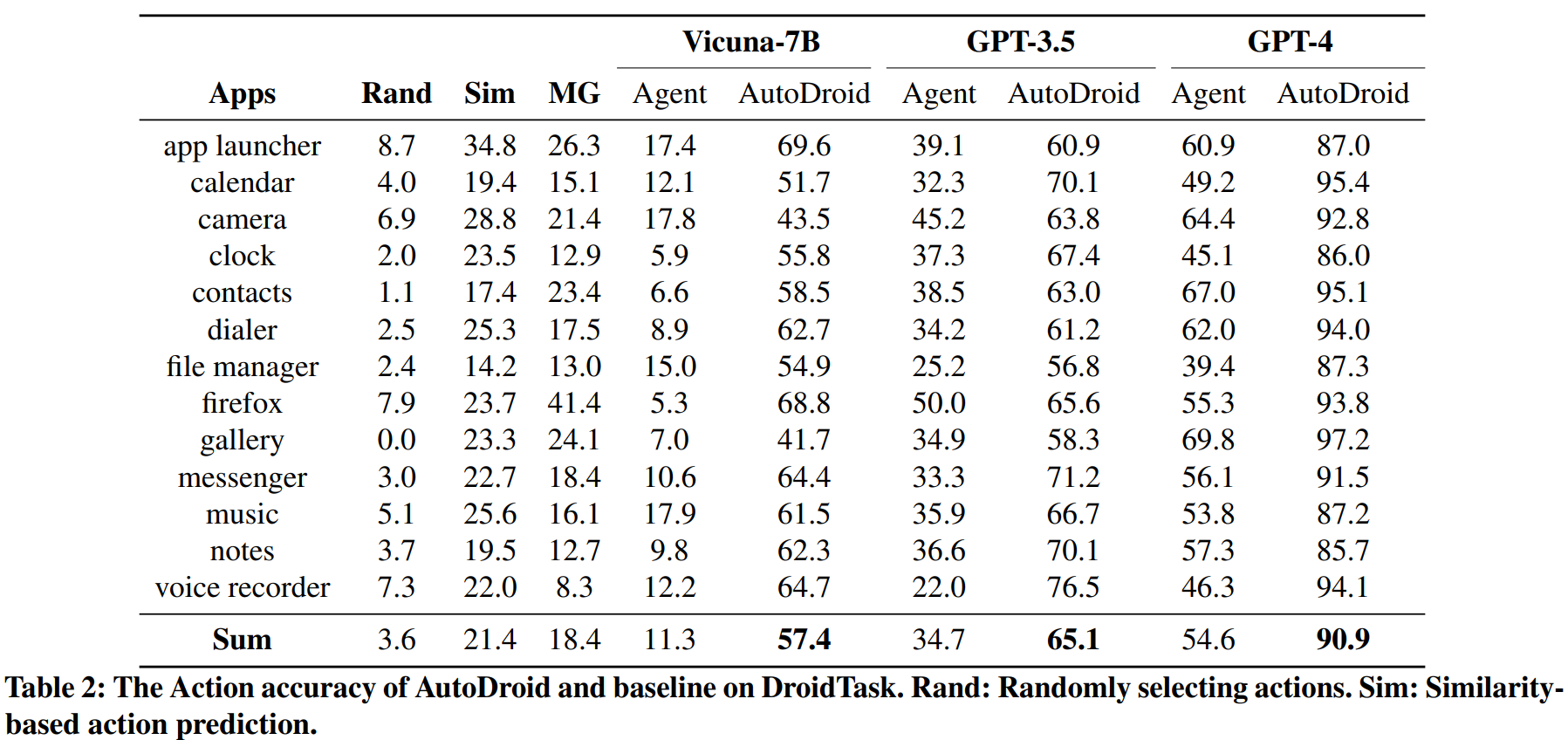
Mobile task automation is an attractive technique that aims to enable voice-based hands-free user interaction with smartphones. % Enabling natural language-based task automation on smartphones has been a dream of mobile system and application developers for a long time. However, existing approaches suffer from poor scalability due to the limited language understanding ability and the non-trivial manual efforts required from developers or end-users. The recent advance of large language models (LLMs) in language understanding and reasoning inspires us to rethink the problem from a model-centric perspective, where task preparation, comprehension, and execution are handled by a unified language model. In this work, we introduce AutoDroid, a mobile task automation system that can handle arbitrary tasks on any Android application without manual efforts. The key insight is to combine the commonsense knowledge of LLMs and domain-specific knowledge of apps through automated dynamic analysis. The main components include a functionality-aware UI representation method that bridges the UI with the LLM, exploration-based memory injection techniques that augment the app-specific domain knowledge of LLM, and a multi-granularity query optimization module that reduces the cost of model inference. We integrate AutoDroid with off-the-shelf LLMs including online GPT-4/GPT-3.5 and on-device Vicuna, and evaluate its performance on a new benchmark for memory-augmented Android task automation with 158 common tasks. The results demonstrated that AutoDroid is able to precisely generate actions with an accuracy of 90.9%, and complete tasks with a success rate of 71.3%, outperforming the GPT-4-powered baselines by 36.4% and 39.7%. The demo, benchmark suites, and source code of AutoDroid will be released at https://autodroid-sys.github.io/.

@article{wen2023empowering,
title={Empowering llm to use smartphone for intelligent task automation},
author={Wen, Hao and Li, Yuanchun and Liu, Guohong and Zhao, Shanhui and Yu, Tao and Li, Toby Jia-Jun and Jiang, Shiqi and Liu, Yunhao and Zhang, Yaqin and Liu, Yunxin},
journal={arXiv preprint arXiv:2308.15272},
year={2023}
}